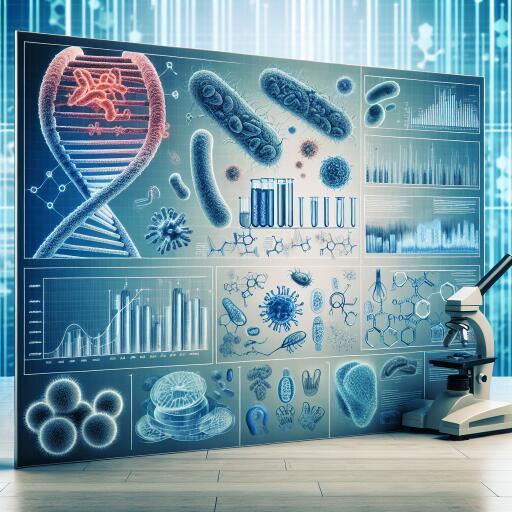
Molecular Methods Revolutionizing Microbial Ecology: Unveiling Unseen Diversity
The rapid advancement in DNA sequencing technology has unveiled a new horizon in the study of microbial ecology, offering unprecedented detailed insights into microbial communities. This leap forward underlines the critical need for innovative bioinformatic tools capable of handling and interpreting the vast datasets generated by these technologies. Reflecting on the latest developments, this article explores the creation of such tools, their applications in microbial ecology, and the remarkable results they have produced.
One significant breakthrough in this domain is the development of a comprehensive bioinformatic pipeline tailored for metagenomics research. This sophisticated pipeline streamlines the process of quality filtering, sequence joining, and taxonomic annotation, enabling researchers to delve deeply into the diversity of bacteria, archaea, and eukaryotes. Its precision facilitates the exploration of microbial biogeography with fine detail, allowing scientists to chart biogeographic patterns like never before.
Further enhancing our toolkit, another software package was engineered to annotate environmental DNA sequences using ontology terms. This innovation taps into the plethora of data housed in public repositories, broadening its application across different ecological studies such as resource tracking, paleontological research, and biogeographic mapping. Together, these bioinformatic tools have significantly expanded our comprehension of microbial diversity in freshwater environments, laying the groundwork for new frameworks in understanding microbial distribution in flowing waters.
These approaches have proven invaluable in multiple environmental studies. For instance, applying these tools to samples from alkaline soda lakes and ancient sediment cores has reinforced the notion that microbes face negligible dispersal limitations. The findings suggest that environmental factors primarily dictate microbial distribution, and dormant microbial communities can help retrace the origin and history of ecological assemblages.
An equally revolutionary development is the establishment of a shotgun metagenomics pipeline, tailored for total DNA extraction analyses from environmental samples. This pipeline encompasses every critical step from raw sequence processing to functional annotation and prokaryotic genome reconstruction. Its application across various ecosystems, representative of the myriad lakes and ponds populating the boreal landscape, uncovered the genomic compositions of abundant yet previously undescribed prokaryotes playing crucial roles in these environments.
This analysis revealed prokaryotes equipped with capabilities for photoferrotrophy and anaerobic methanotrophy—metabolic strategies not previously identified in these ecosystems. Furthermore, in environments characterized by alkaline conditions, the study highlighted how microbes adapt their energy acquisition and carbon fixation techniques to thrive. These findings underscore the potency of a “reverse ecology” approach using genomic tools. By doing so, we gain the ability to identify novel pathways and dissect the allocation of metabolic functions across natural habitats, offering a powerful method to map the intricate roles microbes play in elemental cycles.
In conclusion, the advancements in molecular methods and bioinformatic tools have propelled our understanding of microbial ecology into a new era. These tools not only allow us to chart the unseen diversity and intricate biogeographic patterns of microbial life but also to decode the complex metabolic functions sustaining ecosystems across the globe. This ongoing revolution promises to further unravel the interconnected web of life at the microbial level, offering insights pivotal for both ecological research and biotechnological innovations.





Leave a Reply